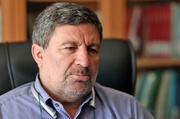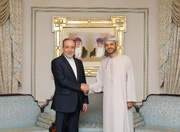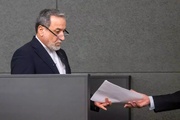In late July, Israeli newspaper Haaretz published a report that went unnoticed to a large extent. The report vaguely discussed a war simulation carried out in Tel Aviv with the presence of a group of former American and Israeli officials as well as “experts” on Iran.
The Haaretz report provided no details about the participants, deliberations, and results of the simulation. The Tehran Times obtained information that reveals what happened in the meeting in detail.
According to the information obtained by the Tehran Times, the war game event was held at the Dan Hotel in Tel Aviv from 16-18 July. The event was organized and hosted by the Tel Aviv-based Institute for National Security Studies (INSS).
Overall, the participants were divided into eight groups each representing a certain country or party. The groups represent the US, Israel, the Islamic Republic of Iran, Europe, Russia, China, the GCC countries, and the Resistance Axis.
Following are the groups and their members:
Israel Group:
Eyal Hulata, former head of the Israeli National Security Council (2021-2023).
Yaakov Amidror, former head of the Israeli National Security Council (2011-2013).
Udi Dekel, INSS.
Meir Elran, INSS.
Ram Yavne, INSS.
Shalom Shlomo, Former Israeli Cabinet Secretary.
Yoni Kedar, IDF Intelligence Unit.
Ben Sabti, JISS.
Coordinator: Anat Shapira.
U.S. Group:
Dennis Ross, Washington Institute.
David Makovsky, Washington Institute.
Dalia Dassa Kaye, UCLA.
Mark Dubowitz, FDD.
Eldad Shavit, INSS.
Chuck Freilich, INSS.
Coordinator: David Patkin.
The Islamic Republic of Iran Group:
Zohar Palti, Former head of Political-Military Bureau, Israel Ministry of War.
Henry Rome, Washington Institute.
Raz Zimmit, INSS.
Omer Carmi, Tel Aviv University.
Suzanne Maloney, Brookings Institute.
Jonathan Panikoff, Atlantic Council.
Behnam Ben Taleblu, FDD.
Coordinator: Jesse Weinber.
Europe Group:
Mark Revev, Reichman University.
Sanam Vakil, Chatham House.
Ronny Leshno-Yaar, Israel MFA.
Hans-Jakob Schindler, CEF.
Frances Tammer, Exter University.
Adi Kantor, INSS.
Coordinator: Rebecca Meller.
Russia Group:
Arkady Mil-Man, INSS.
Shay Har-Zvi, Reichman University.
Daniel Rakov, JISS.
Eugene Rumer, Carnegie Endowment.
Georgy Poroskoun, INSS.
Coordinator: Inbar Noy-Freifeld.
China Group:
Assaf Orion, INSS.
Craig Singleton, FDD.
Ori Sela, INSS.
Galia Lavi, INSS.
Coordinator: Roy Ben Tzur.
GCC Group:
Yoel Guzansky, INSS.
John Hannah, JINSA.
Ofir Winter, INSS.
Gallia Lindenstrauss, INSS.
Coordinator: Ilan Zalayat.
Resistance Axis Group:
Eyal Zisser, Tel Aviv University.
Jonathan Lord, CNAS.
Carmit Valensi, INSS.
Orna Mizrahi, INSS.
Yoram Schweitzer, INSS.
Anat Kurz, INSS.
Yaron Schneider, INSS.
Coordinator: Eden Kaduri.
In addition to the groups in question, a number of other administrative people from INSS were involved in coordinating and managing the event.
Over three days, group members assumed the role of countries represented by their own group to draw up and simulate scenarios for the possible confrontation between Iran and Israel. Haaretz hypothesized that “the war game began with a mysterious assassination in Tehran that was attributed to Israel. Three Iranian nuclear scientists were killed, and Tehran responded by enriching uranium to 90 percent while claiming that the goal wasn't the manufacture of weapons.”
Within five days, Haaretz said, Israel slid into a full-scale regional war with Iran and its allies such as Hezbollah.
The group members sought to put themselves in the place of the countries mentioned above. The discussions of the war game were deeply disheartening for Israel, according to the information obtained by the Tehran Times.
Playing US President Joe Biden, Ross told the participants that the US adheres to its position on Iran and backs Israel’s direct military action against Iran but he implied that Washington won’t act directly against Iran.
The Europe and GCC groups further dampened Israeli hopes of a military solution to Iran. Europe is strictly focused on the Ukraine war, the group representing Europe asserted, while the GCC Group doesn’t back military action and won’t abet Israel in this regard.
All in all, the war game ended with grim prospects for an Israeli military action against Iran. Israelis were told that neutralizing Iran’s nuclear facilities through military actions has become much harder since 2012, and a military attack could well accelerate Iran’s nuclear progress.
Also, the hosts were informed that the GCC countries would strongly oppose Israeli military action against Iran and would use everything in their power to prevent such a likelihood. Most interestingly, Israelis were informed that Michael Erik Kurilla, commander of United States Central Command (CENTCOM), sticks to a different line from the White House.
By Sadegh Fereydounabadi
First published in Tehran Times


























Your Comment